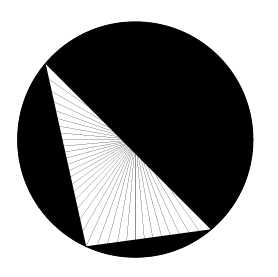
WHAT IF PEOPLE WERE SENSORS, NOT THINGS TO BE SENSED?
Today, venture capitalists are uninterested in IoT pitches unless the gadget comes with an ‘‘ecosystem’’ – an app store and a closed channel of add-ons and parts that it can set margins on, to guarantee ongoing revenue streams. These devices are inheriting the worst parts of the inkjet printer and video-game console market, where consumables, software, and replacement parts all come at a high markup set by the original manu facturer, which uses technological countermeasures to keep third parties from invading its territory, which is your wallet.
But imagine a different kind of IoT: an IoT where human beings are first class citizens, ahead of the ‘‘things’’ doing the sensing and the things being sensed.
For example: IoT vendors envision many ‘‘location based’’ businesses. The devices around you sense when you need a pee, or a coffee, or a new set of tires, and they will advertise those services to you, along with spe cial offers that you’ll gain access to by giving them even more intimate knowledge of your life and times.
People today may be indifferent to surveil lance, but very few welcome it. And whatever today’s attitudes are about privacy, the general population will only be more hostile to surveil lance tomorrow. We haven’t reached peak sur veillance, not by a long shot, but we’ve sure as hell reached peak indifference to surveillance.
Imagine a location service that sold itself on the fact that your personal information was securely contained in its environs, used by you and you alone. You could have devices on your person that used their sensors to know things about you – when you last ate, what your dining preferences are, what your blood-sugar is, and so on, but these devices would have no truck with the cloud, and they would not deliver that information to anyone else for analysis.
Instead, as you passed through space, stores, toilets, restaurants, grocers and other entities would emit information about their offerings. These would be seen and analyzed by your personal network, and it would decide, on your behalf, whether to tell you about them, based on the preferences you’ve set, or that it’s learned from you. The fact that you’ve been shown some piece of information would be between you and the computers you own, and – again – shared with no one.
It’s the opposite of the Facebook model, where Facebook owns all the feeds and decides which one you’re allowed to see. This is more like the email model, where your systems download all the messages someone wants to send you, then use your own filters and rules to decide which ones to discard and which ones to display.
From theme-parks to smart cities to med-tech to workplace efficiency tuning, treating humans as something more than a data-point, but as some thing with native intelligence, personal worth, and dignity, opens up whole worlds of transforma tional, world-changing possibilities.
Excerpt from: Locus Mag